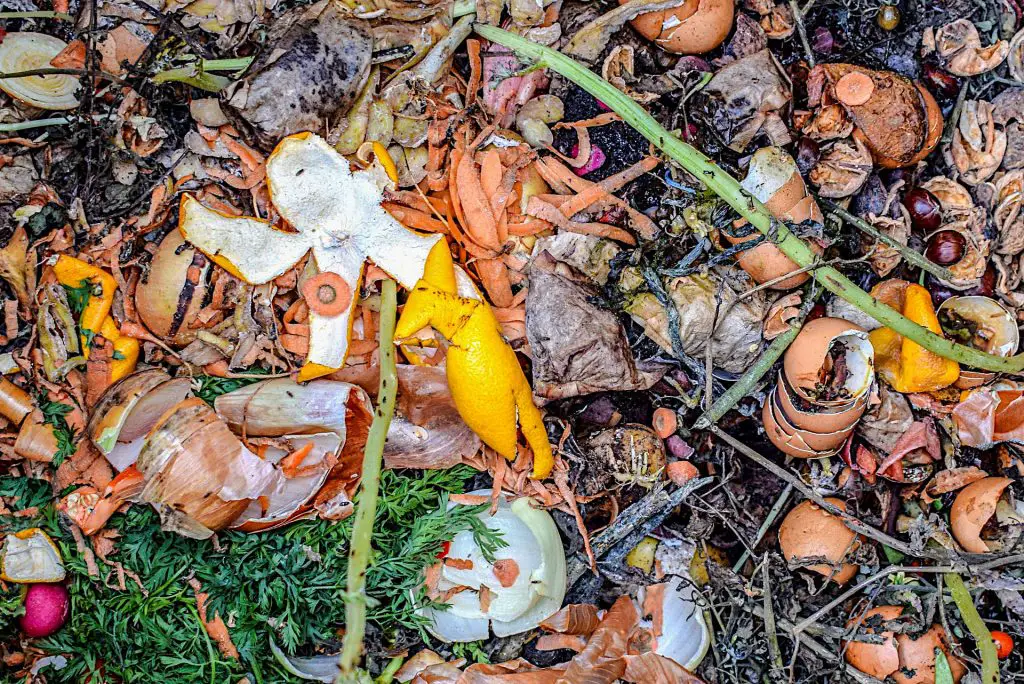Why Does my Compost Smell? How to Stop Your Compost Pile Smelling
When you start a compost pile, you may notice that initially, your compost starts to smell bad. This is normal as you begin breaking down your organic materials. In fact, it usually indicates that your compost is working well
However, if your compost smells putrid after a week or so, you should take action as a properly balanced compost pile should never smell bad.
If your compost continues to give off a sour odor it may mean that the balance of your compost is off.
The main reasons why your compost pile smells
So, why does my compost smell? The reasons why your compost smells bad include:
1) Too much nitrogen – Nitrogen is needed to produce the enzymes that bacteria use to break down food. Without enough nitrogen, microorganisms cannot grow as fast as they should.
2) Too Much Carbon Dioxide (CO2) -This happens when you add too much carbon (brown materials) to your compost. Adding too much carbon causes your compost to become acidic. Acidic compost produces less oxygen and more heat. Oxygen is needed for microorganisms to live and multiply. Heat kills microbes..
3) Not enough oxygen – Oxygen is needed for microorganisms to live. If your compost lacks oxygen, it will not decompose.
4) Too much moisture – Moisture encourages mold and bacteria to grow. If your compost is wet, it will rot and release foul odors.
5) Too much heat – Heat encourages fungi to grow. Fungi produce unpleasant odors.
How to Stop Compost Smells

Composting is a science. It works because of the chemical reaction that takes place between carbon and nitrogen content in the pile aided by oxygen and water that act as agitators. If these elements are out of balance the efficiency of your composting process will be affected one side effect of which is the smell.
Too much nitrogen
To stop your compost from smelling putrid, you first have to establish the reason that it is smelling. Generally speaking, the main cause reeds to be that the carbon to nitrogen ratio is wrong and the pile has too much nitrogen present.
This can cause two problems one is that the compost pile starts to overheat the second is that it just stops decomposing at all both of which lead to the problem of it smelling.
The solution is to rebalance the pile to the correct carbon to nitrogen ratio for the composting process you are using.
To do this you will need to add more carbon and less nitrogen. This can be done by adding more organic brown materials such as wood chips, sawdust, leaves, straw, hay or cardboard.
Too Much Carbon Dioxide (CO2)
The flip side of the problem is that your pile can contain too much carbon, brown organic material. This will stop the pile from heating up hindering or even bringing the decomposition process to a crawl. A side effect can be that the pile starts to smell.
The solution is to this is to add more nitrogen-rich materials to the pile to correct the carbon to nitrogen ratio. This can be through grass clippings, food scraps, and other organic materials with high nitrogen content.
Whether you need to add carbon or nitrogen materials to reset the carbon to nitrogen ratio remember to have a ratio of 30-35:1 (C/N) for cold composting and around 25:1 (C/N) if hot composting.
Compost Smelling because of lack of microorganisms
Your compost needs microorganisms to work properly. These organisms eat the organic waste in your compost and turn it into the soil. They also prevent the buildup of harmful pathogens.
A healthy compost pile contains a diverse population of microorganisms. The best way to ensure that your compost has a diverse population of microorganisms is to use a variety of organic materials.
For example, if you only use grass clippings, you won’t get a diverse population of micro-organisms. Instead, you’ll end up with a bunch of grass clippings.
Adding more fungi and bacteria to your compost bin will increase the number of microorganisms that break down the organic waste.
Change The Type Of Organic Matter In Your Compost Pile
Changing the type of organic matter in your compost bin will change the way the microorganisms break down the organic matter, which will reduce the amount of time it takes for the compost to decompose.
You should keep an eye on your compost pile or bin to see when the organic material begins to break down. When the organic material breaks down, the temperature inside the pile will rise. You may notice that the air becomes warmer and the odor gets stronger. This means that the microorganisms are breaking down the organic matter faster than they were previously.
When the organic matter starts to break down, you can remove some of the material from the pile. Then, replace the removed material with new organic matter. For example, if you have a lot of green plant material in your pile, you could remove some of the green plants and replace them with brown materials.
This process will continue until all the organic matter in your compost pile has been broken down. At this point, you’ll be able to safely dispose of the remaining compost.
Having the right moisture content in your composting pile
If your compost smells, it may be an indication that it is too wet or too dry. Having the right moisture content promotes microbial activity in your compost pile. Adding water to your compost helps it decompose faster. However, don’t add too much water. If you over-water your compost, you’ll dilute the nutrients in the organic matter.
If your compost is too wet, it will start to smell bad because it contains too much moisture. If you have too many “greens” in your pile, or there is inadequate aeration, the pile can overheat and produce an odor. The odor can be eliminated by adding more “browns” to the pile, mixing the materials, or turning the pile.
If you have too little moisture, your compost pile will dry out. The dry materials will decompose slowly, and your pile won’t heat up. Your compost will still decompose, but it may take up to a few months.
Tips on maintaining a healthy smell-free compost pile
To ensure that you don’t end up with a smelly compost pile, add these five tips to your composting routine.
1) Make sure that your compost bin is large enough to hold all the food scraps you throw into it.
2) Add plenty of air holes to allow oxygen into the pile.
3) Make sure that your pile doesn’t get too hot. Too much heat encourages the growth of molds and bacteria.
4) Don’t put meat or bones in your compost bin. These items can attract rodents and insects that might carry diseases.
5) Add manure to the bottom of the bin to provide nitrogen for the microorganisms to feed on.
